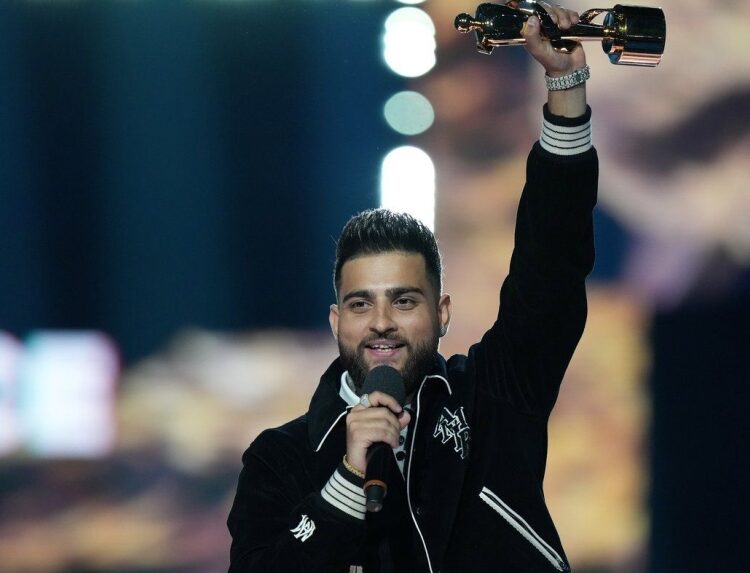By Zile Singh
Every year, third Sunday of June is celebrated as Father’s Day. The first known Father’s Day service occurred in Fairmont, West Virginia, on July 5, 1908, after hundreds of men died in the worst mining accident in U.S. history.
Behind every successful man, there is a woman. Among others, behind the recognition of Father’s Day, two prominent women played significant role. Grace Golden Clayton, the daughter of a dedicated minister, proposed a service to honor all fathers, especially those who had died. However, the observance did not become an annual event, and it was not promoted. Very few people outside of the local area knew about it. Meanwhile, across the entire country, another woman was inspired to honor fathers. In 1909, Sonora Smart Dodd of Spokane, Washington, was inspired by another woman, Anna Jarvis and the idea of Mother’s Day. Sonora’s father, William Jackson Smart, a farmer and Civil War veteran, was a single parent who raised Sonora and her five brothers by himself, after his wife Ellen died giving birth to their youngest child in 1898. While attending a Mother’s Day church service in 1909, Sonora, then 27 years old, came up with the idea.
Within a few months, Sonora had convinced the Spokane Ministerial Association and the YMCA to set aside a Sunday in June to celebrate fathers. She proposed June 5, her father’s birthday, but the ministers chose the third Sunday in

June so that they would have more time after Mother’s Day (the second Sunday in May) to prepare their sermons. Thus, on June 19, 1910, the first Father’s Day events commenced. Sonora delivered presents to handicapped fathers, boys from the YMCA decorated their lapels with fresh-cut roses (red for living fathers, white for the deceased), and the city’s ministers devoted their homilies to fatherhood.
The widely publicized events in Spokane struck a chord that reached all the way to Washington, D.C., and Sonora’s celebration put the idea on the path to becoming a national holiday. However, the holiday did not catch on right away, perhaps due to the perceived parallels with Mother’s Day.
- In 1916, President Woodrow Wilson and his family personally observed the day.
- Eight years later, President Calvin Coolidge signed a resolution in favor of Father’s Day “to establish more intimate relations between fathers and their children and to impress upon fathers the full measure of their obligations.”
- In 1966, President Lyndon Johnson signed an executive order that the holiday be celebrated on the third Sunday in June.
- Under President Richard Nixon, in 1972, Congress passed an act officially making Father’s Day a national holiday. Six years later, Sonora died at age 96.
North America is not the only place where Father’s Day is celebrated, of course:
- In traditionally Catholic countries such as Spain and Portugal, Father’s Day is observed on March 19, the Feast of St. Joseph.
- The Taiwanese celebrate Father’s Day on August 8—the eighth day of the eighth month—because the Mandarin Chinese word for eight sounds like the word for “Papa.”
- In Thailand, Father’s Day is celebrated on former King Bhumibol Adulyadej’s birthday, December 5
The modern role of father has changed over time. Mothers and fathers are partners, each taking more responsibility within family life. It’s not viewed as the “feminine model” with flowers, but it has become more of a day that celebrates
what Dad likes to do, whether it’s going camping, golfing, grilling, fishing, or flying! It focuses on the larger roles that dads play with their children.Fathers are now seen as significant influences on children; we know from many studies what happens when a father figure is lacking. In a sense, today Father’s Day helps to demonstrate the importance and value of fatherhood—and the gifts beyond material goods that a father bestows on his children and family.
Men viewed the idea of Father’s Day as similar to Mother’s Day, which was popular with florists; for fathers it didn’t have the same sentimental appeal. As one historian writes, they “scoffed at the holiday’s sentimental attempts to domesticate manliness with flowers and gift-giving, or they derided the proliferation of such holidays as a commercial gimmick to sell more products—often paid for by the father himself.”
Also, according to Lawrence R. Samuel, the author of American Fatherhood: A Cultural History, men had a different role in the family. It was patriarchal, so they felt that a special day to exalt fatherhood was a rather silly idea, when it was mothers who were underappreciated. However, that sentiment changed over time for several reasons.
“There is no teacher equal to mother and there’s nothing more contagious than the dignity of a father.” – Amit Ray.
Zile Singh is a well respected Columnist, Writer and a Vipassana Meditater. He has a Post-Graduate Diploma in Human Rights. He can be reached at zsnirwal@yahoo.ca
















10 Comments
Roman Moehring
7 months agoWhats up very nice web site!! Man .. Excellent .. Amazing .. I’ll bookmark your blog and take the feeds additionally?KI’m satisfied to search out so many helpful info right here within the put up, we’d like develop more strategies on this regard, thanks for sharing. . . . . .
Live MMA Streaming
7 months agoI have been surfing on-line greater than 3 hours lately, yet I by no means found any attention-grabbing article like yours. It¦s lovely price sufficient for me. In my view, if all website owners and bloggers made good content as you probably did, the web will likely be a lot more useful than ever before.
Basketball Matches Online
7 months agoAn fascinating dialogue is price comment. I think that you need to write more on this subject, it may not be a taboo topic but typically people are not enough to speak on such topics. To the next. Cheers
Watch Free Live F1 Streaming Online
7 months agoThanks for the sensible critique. Me and my neighbor were just preparing to do some research about this. We got a grab a book from our area library but I think I learned more from this post. I’m very glad to see such great information being shared freely out there.
Australian Football Live Streams Free
7 months agoI savor, result in I found exactly what I was having a look for. You have ended my 4 day long hunt! God Bless you man. Have a nice day. Bye
Stream NBA 2024 Free
7 months agoI am not sure where you’re getting your info, but good topic. I needs to spend some time learning much more or understanding more. Thanks for wonderful info I was looking for this information for my mission.
Live American Football Schedule
7 months agoWoah! I’m really enjoying the template/theme of this blog. It’s simple, yet effective. A lot of times it’s very difficult to get that “perfect balance” between usability and appearance. I must say you’ve done a awesome job with this. Also, the blog loads super fast for me on Internet explorer. Outstanding Blog!
Primeira Liga Live Streaming
7 months agoThe very root of your writing whilst appearing reasonable initially, did not sit very well with me after some time. Somewhere throughout the paragraphs you actually were able to make me a believer but only for a very short while. I however have a problem with your leaps in assumptions and you would do well to help fill in all those gaps. In the event that you can accomplish that, I will definitely be impressed.
Soccer Live Coverage
7 months agoIts like you read my mind! You appear to know a lot about this, like you wrote the book in it or something. I think that you can do with some pics to drive the message home a little bit, but other than that, this is great blog. A great read. I’ll certainly be back.
Cops Badges Badges
3 months agoYour expertise on this subject shines through in this post.